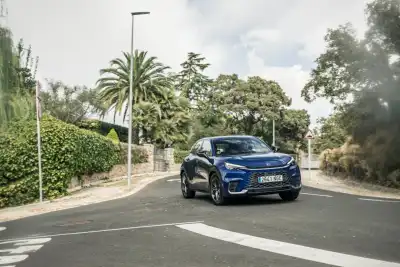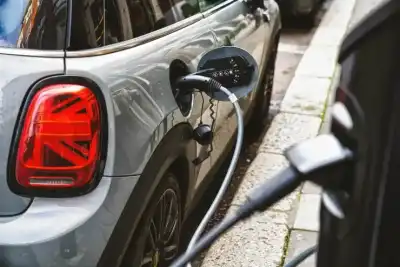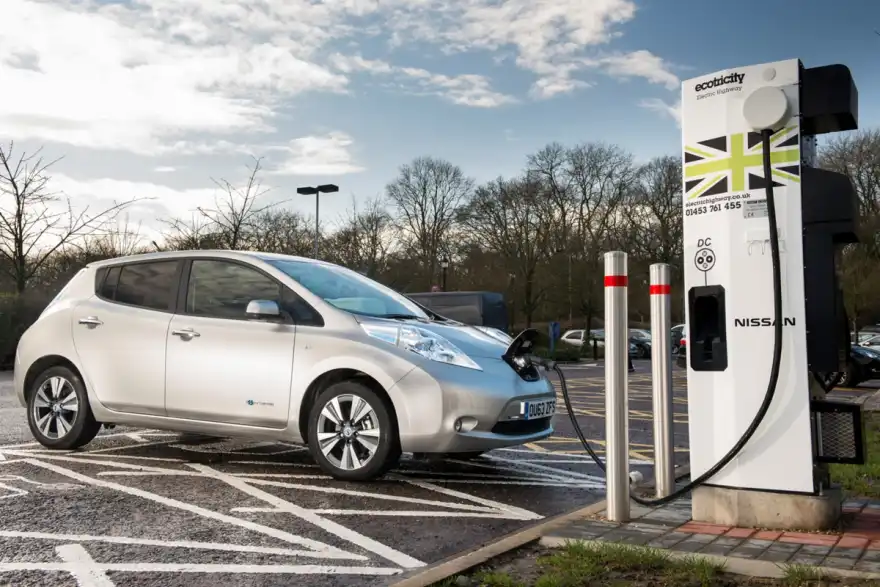
Can I Charge My Electric Car at Home?
Absolutely, and you’ll find that it’s the easiest way to keep your car charged up.
Many car manufacturers will include a home charging point as part of a purchase or lease, which is a box that sits outside your house with a dedicated cable for your car. It allows for a higher flow of electricity, chagrin your car up quickly. Most cars will need a few hours to fully charge, but plug in overnight and you’ll always have a fully charged car in the morning.
The government also provides a £350 grant for eV owners to help towards the cost of having a charging point installed. If you can’t get one included with the car, prices start at around £500, or £150 after the government has chipped in.
All new chargers are smart, too, allowing you to set charging to happen between certain hours, enabling you to take advantage of cheaper overnight rates for electricity.
It’s also possible to charge using a regular three-pin plug socket, but this will take much longer, and maybe even more than overnight for a full charge. Still, it’s helpful to know that you can top up an electric car this way, if necessary.
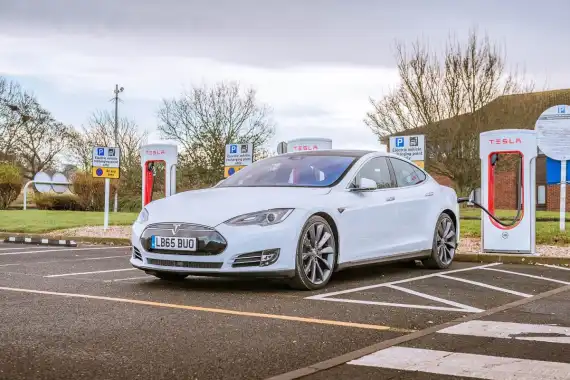
Are Electric Cars Exempt From the Congestion Charge?
Yes, which could save you £15 a day. All electric cars are exempt from the London congestion charge, and other similar charges planned for introduction around the UK.
You'll be able to silently zip in and out of the capital at zero cost, with some areas of the city even providing free parking for electric car users.
However, there is a potential catch to be careful of; you’ll need to register your electric car as exempt, something that costs you £10 a year. Fault to do that and you could face a £160 fine, so ensure you go online and get your car on the system. After that, you’re good to go.
Can Electric Cars Be Manual Rather Than Automatic?
Electric cars work differently to traditional cars, but you might still be surprised to find there isn’t a conventional gearbox - the car is either on, or off.
As you accelerate, the electric motor simply spins faster, although it uses more battery power as it does so. As modern electric motors are more than capable of propelling a car along at 70mph, and more, while also accelerating very quickly, there’s no need to fit a gearbox.
That said, Porsche has fitted a two-speed gearbox to the Taycan. The driver doesn’t get to choose which of the two gears to use, with Porsche using it to extend the car’s maximum speed, so it’s not like a traditional gearbox.
Could that be extended to create a proper manual system? Possibly. Ford has built an electric concept car based on the Mustang with a six-speed manual gearbox, but it’s adding cost and complexity for little benefit.
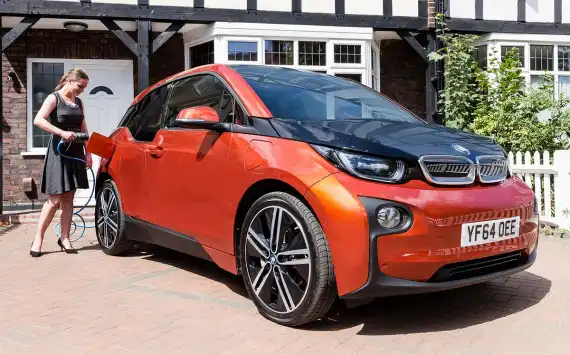
Which Electric Cars Have the Longest Range?
Tesla dominates the market with long-range versions of all of its cars. Its Model S tops the lists, with the Long Range AWD version having a range of 405 miles, but the forthcoming Model S Plaid will extend that to as much as 522 miles. You pay handsomely for that range, though, with the Plaid expected to cost more than £125,000.
Ford’s Mustang Mach-E is a family-friendly SUV that has a range of up to 370 miles, depending on the specific model, while the smaller Volkswagen ID.3 Tour can go for 336 miles.
For the most part, the range is tied very closely to the size of the battery pack, which is measured in kilowatt-hours (kWh). The Model S Long Rage Plus has a 100kWh battery, while the Ford Mustang’s is slightly smaller at 98.8kWh. The lighter, smaller Volkswagen has a 77kWh battery pack. The cheapest electric car on sale, the Smart ForTwo EQ, has a 17.7kWh battery with a range of 80 miles.
Are Electric Cars Available as a 4x4 and Are They as Effective as a Regularly Powered Version?
A surprising number of electric cars are already four-wheel-drive models, from luxury SUVs to smaller hatchbacks. An electric motor is far smaller than a regular petrol or diesel engine, so it’s easier to squeeze a second motor under the boot floor for the rear wheels.
This leaves cars such as the Skoda Enyaq iV and Lexus UX with impressive traction and stunning performance, which should prove useful in adverse conditions.
If you’re thinking about a rugged off-roader, the news is less pleasing. There isn't anything that will cope with more than a muddy playing field right now, but there are plans afoot to fill that gap. Several electric pickup trucks are coming to market in America, led by the Ford F-150 and Tesla Cybertruck, and it’s only a matter of time before that technology moves into UK-friendly tough 4x4s.
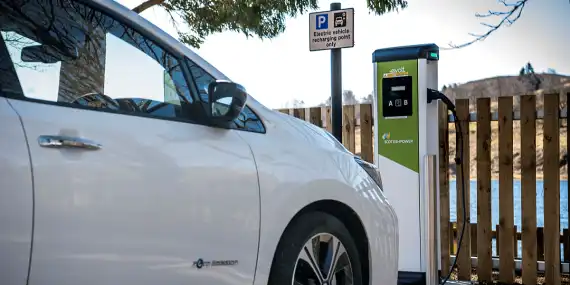
Are Electric Cars Better for the Environment?
There are many variables here but, in a nutshell, yes. By any measure, running an electric car is better for the environment than an equivalent petrol or diesel model.
Electric cars don't produce any local emissions, which means nothing is coming from an exhaust pipe to pollute the streets you’re driving on. In cities and urban areas, this improves air quality significantly.
Of course, producing electricity isn’t a non-polluting activity but, as the UK edges further and further down the road of renewable energy (and we’re at about 50/50 right now), the pollution further afield will also reduce.
There are also concerns about rare metals being used in battery packs, and the damage done, both environmentally and politically, by the mining for these materials. There’s some truth in that but, again, the industry is getting better. Cobalt supply is an issue, but Tesla is pushing forward with plans to remove cobalt from battery packs entirely. And where Tesla leads, many follow.
Are Electric Cars Self Charging?
Sadly not. Hybrid cars are advertised as being self-charging, but they have a petrol engine to supplement the electric motor, so you’ve always got power. With an electric car, you need to ensure it's plugged in to charge the battery, or you will be left stranded.
Every model operates as efficiently as it can, recovering some energy from the wheels when coasting or braking. With the right sort of driving and a bit of luck, you can recover up to 30% of the energy you’ve used, extending the range of the car significantly, but you’ll get nothing back from a long motorway drive.
A hybrid, in contrast, uses the petrol engine to charge a much smaller battery pack, meaning you’re still burning through fossil fuels to make progress.

